What is clean and unclean? How should this be observed properly? What foods are forbidden for Christians to eat?
The word pagan (from the Latin paganus) in the Christianized Roman Empire referred to a non-Christian, literally a "villager" or backward person, as Christianity initially spread more rapidly among urban populations. In Old Russian, the term "pagan" also came to mean the unbaptized, and later it referred to a kind of impurity, including physical, bodily impurity.
The concepts of clean and unclean, that is, forbidden or "excluded," are found in the Old Testament with its numerous prohibitions. For example, it speaks of unclean animals (those forbidden for sacrifice and consumption), human impurity due to certain diseases (such as leprosy or a woman’s bleeding), impurity related to menstruation and childbirth for women and newborns, seminal emissions for men, and impurity associated with dead bodies. A person defiled by contact with such impurity was required to offer a sacrifice to God, undergo purification rituals performed by priests, or, in some common cases, simply wait for the period of impurity to end, often by sunset. More about this can be read in the biblical book of Deuteronomy.
The Apostolic Council decreed that in the Christian Church, it was no longer necessary to observe the many Old Testament prohibitions and purifications, though certain fundamental requirements remain:
“Abstain from meats offered to idols, and from blood, and from things strangled, and from fornication, and from things you would not want done to yourself.”
(Acts 15:29)
The division of animals into "clean" and "unclean" lost its significance in Christianity, as blood sacrifices were abolished by Christ, and food was blessed by God Himself for Noah after the Flood with these words:
“The fear of you and the dread of you shall be upon every beast of the earth, and upon every fowl of the air, and upon all that moveth upon the earth, and upon all the fishes of the sea; into your hand are they delivered. Every moving thing that liveth shall be meat for you; even as the green herb have I given you all things. But flesh with the life thereof, which is the blood thereof, shall ye not eat.”
(Genesis 9:2–4)
Thus, the apostolic decree reaffirms a return from the later “Mosaic” covenant to the original “Noahic” covenant regarding animals. This was further confirmed by God in a vision to the Apostle Peter (Acts 10:10–16; 11:5–10), where the Lord, in response to Peter’s reluctance to eat animals previously considered "unclean," commanded:
“What God hath cleansed, that call not thou common.”
(Acts 10:15; 11:9)
Nevertheless, we should eat only those animals commonly consumed in our culture, avoiding anything exotic or unusual. St. Basil the Great, in his 86th canon, writes:
“As regards the suitability of food, meat is like green herbs for us (Genesis 9:3), but as with herbs, we distinguish between what is beneficial and what is harmful. Just as hemlock is a plant, so is the meat of a griffon meat, but no one in their right mind eats henbane or touches dog meat without great necessity (and even in such cases, the eater has not broken the law).”
Similarly, the holy martyr Archpriest Avvakum, during the famine of the Daurian expedition, ate the meat of various animals and horseflesh out of great necessity, as he recounts in his Life.
In pre-schism Rus, all animals not permitted in homes or for food were called "unclean," and people washed their hands after touching them. These customs have been preserved in the Old Rite. For example, eating pork is accepted, but eating horseflesh is not. Another distinction is that dogs are not allowed inside homes, while cats are not only permitted in homes but even in churches to deal with mice. However, if a dog runs into a church, it is considered defiled and must undergo minor sanctification according to the rite in the Trebnik.
Many customs concerning so-called "ritual impurity" in the Old Rite developed over centuries as rules of personal and communal hygiene. For instance, if a mouse falls into food, dies, and begins to decay, the entire product must be destroyed (it can be fed to livestock), and the vessel containing it must be sanctified with holy water and the priest's prayer. If the mouse has not yet started to decay, the portion of the food that came into contact with the mouse is discarded, and the remaining food is sanctified by the priest’s prayer and sprinkling with holy water.
All vessels are classified into three categories: clean, holy, and unclean. A clean vessel is one used for preparing food, storing water and provisions, drawing water, and for eating and drinking. An unclean vessel is one used for feeding and watering animals, washing clothes, bathing, or as a toilet. A holy vessel is one consecrated to God, such as an oil lamp, sacred vessels, or other church implements.
A clean vessel can be consecrated for God’s use, for example, as an oil lamp, thereby becoming holy. Once consecrated, it may never again be used for common purposes (such as drinking tea), let alone be turned into an unclean vessel. If a clean or holy vessel is defiled—such as if an animal drinks or eats from it, or if it is inadvertently used for an unclean purpose (e.g., washing clothes in a clean trough)—it must be sanctified according to the Trebnik by a priest with prayer and holy water. However, if a clean vessel is deliberately and knowingly used for unclean purposes, it cannot be restored to clean use, as it is no longer subject to sanctification. It is believed that diseases can be transmitted through unclean vessels and other forms of physical impurity.
Sharing food or drink with heretics or using vessels they have used is also considered unclean. However, if someone converts to Orthodoxy from a heretical family and their relatives, including a spouse, have not joined the Church, it is not forbidden to eat and drink with them, as Scripture says:
“For the unbelieving wife is sanctified by the husband.”
(1 Corinthians 7:14)
A woman is considered "impure" during her menstrual period until the eighth day (if it does not last longer) and for 40 days after giving birth or after a miscarriage. During this time, she should not enter the church beyond the vestibule (or the area designated by the rector for women undergoing purification), receive blessings from clergy, partake of the Eucharist, or participate in other church sacraments (except in cases of mortal necessity), touch holy objects, or consume holy bread (dora).
A man or woman is considered impure for the entire day following a "nocturnal emission" until sunset. They must immediately wash, change clothes, and recite as penance the "Rule for One Tempted in Sleep," accompanied by 50 prostrations (on Saturdays, Sundays, and great feasts, this is replaced by 100 prayers of “Without number have I sinned, O Lord, save me for Thy holy name’s sake”).
After marital relations, spouses must wash, change their bedding, and refrain from touching holy objects until sunset. According to the Kirik Questions, this rule is less strict: after washing, one may touch icons. On the night before and after receiving Holy Communion, abstinence from marital relations is required.
A washing machine or any vessel used for laundering is considered unclean (pagan), and all items washed in it are considered impure. Therefore, clothes must be rinsed afterward with the Jesus Prayer in a natural body of water or under running water.
A bathhouse and vessels used for bathing (except for natural water bodies) are considered unclean. After bathing in a tub, pool, or bathhouse, a person must rinse either in a natural body of water or under running water from a shower, hose, or clean vessel. Running water from a clean container or reservoir is considered "clean."
The Trebnik contains instructions on how to sanctify defiled churches, homes, vessels, wells, food, wine, oil, and similar items.
For more on this topic, you can view my video lecture in the "Online Sunday School" at the following link:
https://t.me/voskresnaya_shkola_onlajn_rpsc/457
— Archpriest Vadim Korovin
Why do Old Believers celebrate name days instead of birthdays?
Indeed, secular people typically celebrate their birthdays by gathering guests for feasting, often with alcohol, music, dancing, and other inevitable attributes of worldly parties. Such people are entirely unfamiliar with the concept of name days or the day of their angel. It is worth noting that about a hundred years ago or more, things were different. Even secular individuals, including members of royalty, celebrated their name days instead, as evidenced by greeting cards they exchanged, which are now abundantly found among collectors and in museum collections.
Christians, unlike non-believers and secular people, celebrate not their birthdays but their name days, also known as the day of their angel. This is a feast in honor of the saint after whom the Christian was named at Holy Baptism. This saint is the person’s heavenly patron, to whom they pray daily and in whose honor they hold a celebration called a name day.
A birthday, on the other hand, is a celebration of oneself. St. John Chrysostom observes that Scripture offers no examples of anyone celebrating their own birthday, except for the impious kings Nebuchadnezzar and Herod Antipas. The first celebration incurred God’s wrath upon Nebuchadnezzar: a mysterious hand wrote the words “Mene, Tekel, Peres” on the wall, and that very night, Nebuchadnezzar’s kingdom fell to an invasion by the Persian army, and the king himself was killed (Daniel 5). The second celebration, during which the daughter of Herod’s unlawful wife danced to please him, led to the murder of the greatest of the prophets—St. John the Forerunner and Baptist of the Lord (Mark 6:21–29).
Thus, the day of one’s angel is a celebration in honor of a saint. When observed piously, without drunkenness, dancing, or excess, it is a celebration pleasing to God. In contrast, a birthday is a celebration in honor of oneself, an expression of pride, which is the mother of all vices. For this reason, it is unbecoming for Christians to hold celebrations in honor of their own birth.
— Archpriest Vadim Korovin
What dangers might a person face during the catechumenate period or immediately after baptism? Sometimes, especially during the process of becoming churched, a person sees or experiences “scary things” from demons. How can this be explained, and how can one protect themselves from such attacks?
The venerable Abba Dorotheus, in his book Spiritual Instructions, writes that any good deed is either preceded or followed by temptation from the devil. The enemy tries to prevent a person from carrying out a good intention, and if he cannot succeed, he retaliates against the Christian in various ways after the good deed is done.
Indeed, in practice, this happens quite often, including with those who are in a prolonged period of catechesis but do not receive weekly prayers from a priest as prescribed by the rules and the Order of Catechesis. However, the devil’s attacks can be particularly strong against newly baptized adult Christians. If they live according to the commandments, regularly attend church services, and pray at home, the devil is usually unable to influence them directly. In such cases, he tries to cause trouble for the Christian through other people, especially unbaptized individuals: parents, relatives, old friends, coworkers, supervisors, neighbors, or even complete strangers.
These people, as if in unison, may suddenly begin dissuading the newly baptized from attending church, keeping fasts, praying at home, or living a Christian life in general. They may start unnecessary arguments, threaten job termination or other troubles, and commit petty acts of malice. These individuals often do not realize that they are acting under the influence of an evil spirit. Therefore, one should not harbor resentment toward them or respond to evil with evil. Instead, avoid conflicts and pray for oneself and for these people. Experience shows that such temptations usually subside within one to two months.
Occasionally, there are other forms of diabolical attempts to influence a person who has entered the Church. These may involve unusual, “supernatural,” or “mystical” phenomena by which the devil tries to frighten the person: voices, visions, sudden feelings of fear, and so on. This can happen to people who, as it was said in earlier times, have a particularly “sensitive mental constitution,” meaning a highly sensitive nervous system.
To overcome such temptations, one should not fear these phenomena, for the devil cannot cause physical harm to a person without God’s special permission. One should steadfastly continue praying in church and at home, follow the advice of their spiritual father, and observe the established fasts. If these phenomena do not subside within a month or two, or if they are excessively intense and distressing, it may indicate a nervous disorder. In such cases, I would recommend promptly seeking advice and assistance from a physician specializing in such conditions—namely, a psychiatrist—to rule out or confirm a medical issue. If a condition is diagnosed, it is important to improve and maintain one’s health through appropriate treatment. At the same time, it is essential to continue praying, fasting, attending church services, and participating in the sacraments, as these are inherently healing.
If you are persistently troubled by such “frights,” you may contact me for a more specific consultation, as I previously worked as a psychiatrist and addiction specialist, making me familiar with these types of medical problems.
— Archpriest Vadim Korovin
Can Old Believers sit at the same table with heretics, eat from the same dishes, and participate in joint prayer?
Much depends on the circumstances—whether you are visiting them or they are visiting you.
There are numerous Church rules that regulate our conduct regarding heretics. What do these rules say? Looking at their context and interpretations, they prohibit joint prayer with heretics or those excommunicated from the Church, whether at home, privately, or in a church assembly. However, this applies specifically when you go to them to pray, or participate in their religious celebrations. If they come to our church, they must not be allowed to serve in the sanctuary (e.g., acting as a priest or deacon) or to sing in the choir. They also must not be allowed access to sacred things, such as participation in the Sacraments or taking prosphora.
Typically, rules governing the behavior of non-Orthodox visitors are displayed in the vestibule or at the entrance to the church. According to these rules, non-Orthodox individuals remain in the vestibule, must not distract the faithful with their actions, and are expected to pray along with everyone else, make the sign of the cross with two fingers, refrain from making bows at will, and abstain from venerating icons. They have come to us, not we to them. Therefore, they must abide by the internal order of our church.
Can we sit at the same table with them and eat from their dishes? What is the basis for any prohibition of this?
In the rite of confession, it is mentioned as a sin to share a meal with heretics. However, this does not refer to mere eating but to close fellowship where one deliberately goes to heretics, participates in their celebrations and feasts, and adopts their customs.
The Apostle Paul writes:
"I wrote unto you in an epistle not to company with fornicators: yet not altogether with the fornicators of this world, or with the covetous, or extortioners, or with idolaters; for then must ye needs go out of the world. But now I have written unto you not to keep company, if any man that is called a brother be a fornicator, or covetous, or an idolater, or a railer, or a drunkard, or an extortioner; with such a one no not to eat. For what have I to do to judge them also that are without? Do not ye judge them that are within? But them that are without God judgeth. Therefore put away from among yourselves that wicked person."
(1 Corinthians 5:9–13)
It is clear from this that the measure of not eating together applies not to outsiders or strangers, but to those within the Church who openly live in sin. God judges those outside; what is that to us? How could your refusal to share a meal with an unfamiliar person affect them?
Our task is not to distance ourselves from those who wish to come to us but, on the contrary, to ensure that as many people as possible learn about Christ and the true Church of Christ. Thus, obedience to commandments and canons should always be carried out with reason and love. The goal is not to repel someone but to bring them to Christ, lovingly explaining that not everything happens at once—that they must gradually ascend to the Church, step by step. If done with love, the person will understand and value more deeply what is not given immediately.
— Priest Evgeny Gureev
Is it permissible to pray for unbaptized or non-Orthodox relatives, for example, those from the ROC?
It is absolutely forbidden to submit commemorative notes for such individuals during the Proskomedia, that is, in the altar. During the Proskomedia and the Divine Liturgy, only the faithful—members of the Church—are commemorated. However, at home, you are free to decide for whom you pray, especially when it comes to your relatives. In church, you can request a moleben (intercessory prayer service) for such relatives.
The Apostle Paul writes:
“I say the truth in Christ, I lie not, my conscience also bearing me witness in the Holy Ghost, that I have great heaviness and continual sorrow in my heart. For I could wish that myself were accursed from Christ for my brethren, my kinsmen according to the flesh.”
(Romans 9:1–3)
The Apostle Paul was willing to be accursed from Christ for the sake of his fellow Israelites who did not accept Christ. It is indeed a great sorrow when relatives are not united with you in the one Church. Therefore, you not only may but are obligated to pray for them. Who else, besides you, will pray for them?
The same Apostle Paul writes to Timothy:
“But if any provide not for his own, and especially for those of his own house, he hath denied the faith, and is worse than an infidel.”
(1 Timothy 5:8)
What does it mean to “provide for one’s household”? It does not simply mean providing food and clothing. It primarily means caring for their spiritual salvation and desiring their eternal life with God. For this reason, you must pray for them, asking the Lord to soften their hearts. As long as a person is alive, there is hope that they may come to God. But how can they come to God if you refuse to pray for them?
“For what knowest thou, O wife, whether thou shalt save thy husband? Or how knowest thou, O man, whether thou shalt save thy wife?”
(1 Corinthians 7:16)
This refers to a Christian woman with an unbelieving husband, and a brother with an unbelieving wife.
The Apostle Paul also recommends praying not only for relatives but for the entire world:
“I exhort therefore, that, first of all, supplications, prayers, intercessions, and giving of thanks, be made for all men; for kings, and for all that are in authority; that we may lead a quiet and peaceable life in all godliness and honesty.”
(1 Timothy 2:1–2)
At the time, kings and those in authority were pagans.
The same applies to the deceased. To God, all are alive. Therefore, you must also care for the deceased, who can no longer pray or give alms for themselves. They await your prayers. However, the form of prayer differs. In church, you cannot submit notes for the altar for those who are not members of the Church. If they were not baptized, they were not given a Christian name, and thus the Church does not commemorate them by name. In such cases, you can give alms on their behalf and ask for prayers for the deceased relative, such as through the canon to the martyr Varus. You can also pray to the Lord or the Mother of God without naming the individual. God knows for whom you are praying.
— Priest Evgeny Gureev
Can Old Believers set up a Christmas tree for Christmas and New Year?
Attitudes toward New Year and Christmas trees vary greatly within the Old Believer community. This depends on many factors. What might be beneficial for one person could prove harmful for another. Traditions differ, as does the environment in which we live. Ultimately, everyone can choose the approach that suits them best. If you have doubts, it’s best to discuss the matter with your spiritual father.
So why is a fir tree chosen? Because it is an evergreen plant, symbolizing eternal life. A flower symbolizes resurrection: from a seed cast into the earth and dying, new and beautiful life emerges, even after the chill of winter, which serves as a symbol of death and nature’s dormancy. Unlike a flower, however, the fir tree does not wither even in winter. It is a symbol of victory over death, a sort of substitute for flowers. Therefore, decorating a tree for the birthday of Him who defeated death and grants eternal life is appropriate and carries symbolic meaning.
The custom of decorating a tree for the holiday arose during Christian times and is in no way connected to pagan rituals. The fir tree has long served as a symbol of the tree of paradise, its branches adorned with edible fruits symbolizing the Body of Christ. Such scenes were enacted in Christian Europe on the eve of Christmas, as early as the 5th century. The star crowning the top of the tree recalls the light of the star of Bethlehem.
No one is troubled by the Orthodox tradition of celebrating Palm Sunday with willow branches in hand, or by churches being decorated with birch trees for the Feast of the Holy Trinity. Similarly, we can celebrate Christmas by decorating churches and homes with green fir branches. In the Old Testament, the Lord Himself commanded the celebration of a feast with branches of beautiful trees:
“On the first day [of the feast] ye shall take the boughs of goodly trees, branches of palm trees, and the boughs of thick trees, and willows of the brook; and ye shall rejoice before the Lord your God.”
(Leviticus 23:40)
In traditional European culture, a decorated fir tree specifically symbolizes the celebration of Christmas. Today, opponents of traditional Christian culture often oppose the setting up of trees in public squares. I believe Christians should not join in such anti-Christian campaigns.
Orthodox Christians do not celebrate the civil New Year because it falls during the strict days of the Nativity Fast. Therefore, whether to set up a tree for the secular New Year celebration is a matter for each Christian to decide individually, possibly in consultation with their spiritual father.
— Priest Evgeny Gureev
Is it sinful to live in the world, in cities? Should we flee from the world to forests and mountains?
Christians are called people “not of this world,” not because they live outside the world, but because they do not submit to the prince of this world, that is, the devil. Instead, they submit to Christ, who, on the contrary, sends them into the world. Why? To proclaim the message of Christ:
“As Thou hast sent Me into the world, even so have I also sent them into the world... that the world may believe that Thou hast sent Me.”
(John 17:18, 21)
Christians are the salt of the earth. Just as salt prevents meat from spoiling, so Christians, by living in the world, prevent it from becoming utterly corrupt and perishing. The task of Christians is not to flee from the world but to serve God within it so that the world may come to believe, as Christ said.
Why, then, did Christians at times flee from the world? They fled because they were persecuted, not because they sought to escape voluntarily:
“But when they persecute you in this city, flee ye into another.”
(Matthew 10:23)
Why, then, does the Apostle John write:
“Love not the world, neither the things that are in the world. If any man love the world, the love of the Father is not in him.”
(1 John 2:15)
And why does the Apostle James say:
“Know ye not that the friendship of the world is enmity with God? Whosoever therefore will be a friend of the world is the enemy of God.”
(James 4:4)
The Blessed Theophylact of Bulgaria explains that “the world” refers to sinful people who lack the love of the Father within them. Whoever loves God and strives for divine things is called a friend of God. This does not mean fleeing physically from the world but rather distancing oneself from sin and everything that leads to sin.
The Apostle Paul clarifies:
“I wrote unto you in an epistle not to company with fornicators: yet not altogether with the fornicators of this world... for then must ye needs go out of the world. But now I have written unto you not to keep company, if any man that is called a brother be a fornicator...”
(1 Corinthians 5:9–11)
It is not interaction with the world that must be avoided but rather keeping oneself from sin.
Why, then, are monasteries needed? Monasticism is not a path for everyone. Monastics undergo training in Christian virtues, obedience, and humility. After completing this training and reaching a certain level of spiritual perfection, they are still called to serve God and others within the world, praying for the world and helping people in their new capacity.
“For God so loved the world, that He gave His only begotten Son, that whosoever believeth in Him should not perish, but have everlasting life.”
(John 3:16)
— Priest Evgeny Gureev
Is it necessary to have a spiritual father? Can one change their spiritual father?
If a family is a small church, then a Christian community is a larger family. Therefore, every Christian must have a spiritual father with whom they can discuss their problems, seek answers to pressing questions, and so on. Without necessity, a spiritual father should not be changed. One should not arbitrarily go to confession with one priest today, another tomorrow, and yet another the day after.
When a trusting relationship exists between an ordinary Christian and a priest, as there should be between a father and his children, the priest knows the needs of his spiritual child. He understands their strengths and weaknesses, what they are capable of and what is beyond them, and what penance they can handle. He can decide whether to grant them leniency, such as in fasting, or whether they are capable of greater spiritual efforts. He knows their inclinations, interests, and preferences. This is why a spiritual father is the one who provides a recommendation for a candidate to enter the clergy or study in a theological institution.
However, a priest is a spiritual father, not the owner of his flock. The faithful are not serfs, and the priest is neither a lord nor a soul-owner. The flock is entrusted to him as a shepherd by the Lord, and he will have to give an account for each one of them. Every Christian is free to choose their spiritual father. A priest is also a human being, with weaknesses, temperament, and a unique character. Misunderstandings can arise between a priest and an individual parishioner. In such cases, the priest has no right to hinder the parishioner from transferring to another priest. On the contrary, he should bless them and help them find a spiritual father better suited to them.
However, if a Christian has committed a transgression and is under excommunication or a specific penance, they cannot seek another spiritual father to ease the penance or lift the excommunication. If someone feels the excommunication is unjust, they will benefit spiritually by humbly enduring their punishment. If a parishioner is excommunicated without being told the reason or the duration of the excommunication, the matter should be appealed to the ruling hierarch or bishop for review. If reconciliation proves impossible or mutual understanding cannot be reached, it is better to recommend that such a Christian change their spiritual father.
— Priest Evgeny Gureev
Why do we call ourselves servants of God?
In the Gospel, Christ says:
“Ye are My friends, if ye do whatsoever I command you. Henceforth I call you not servants; for the servant knoweth not what his lord doeth: but I have called you friends.”
(John 15:14–15)
From this passage, we see that it is not the Lord who calls us servants; rather, we call ourselves that. Why? Let us recall the Parable of the Prodigal Son. Returning after his long wanderings, the son says to his father:
“Father, I have sinned against heaven, and in thy sight, and am no more worthy to be called thy son: make me as one of thy hired servants.”
(Luke 15:18–19)
The Apostle Paul adds:
“For I am the least of the apostles, that am not meet to be called an apostle, because I persecuted the church of God.”
(1 Corinthians 15:9)
From these excerpts of Holy Scripture, it is clear that both the Prodigal Son and the Apostle Paul called themselves unworthy—a son and an apostle, respectively—out of humility and repentance for their sins.
We also understand that we do not fully keep all of God’s commandments, and thus, in humility, we call ourselves servants, as the Prodigal Son did, recognizing our unworthiness.
Consider the medieval norm: “The vassal of my vassal is not my vassal.” That is, if we are servants of God, then we are no one else’s servants—not servants of sin, not servants of the devil, nor servants of this world.
“No man can serve two masters... Ye cannot serve God and mammon.”
(Matthew 6:24; Luke 16:13)
To be a servant of God is not an insult but a very high status—it is a declaration of freedom. Even if a person is physically enslaved or in captivity, if their spirit remains faithful to the Lord, they are a servant of God. They are a citizen of the Kingdom of Heaven here and now, even if bound hand and foot or in chains.
Another explanation traces the term “servant of God” to the concept of being a “co-worker.” A person is a co-worker with God. The entire world was created for humanity, whose task is to be its caretaker:
“And the Lord God took the man, and put him into the garden of Eden to dress it and to keep it.”
(Genesis 2:15)
As a gardener, humanity was entrusted not only with tending the plants but also with establishing norms and rules for life on earth in accordance with God’s commandments.
— Priest Evgeny Gureev
Why is a man prohibited from shaving his beard? Why should we so strictly follow the Old Testament today?
The strict prohibition against shaving the beard is indeed found only in the Old Testament:
“Neither shalt thou mar the corners of thy beard.”
(Leviticus 19:27)
However, the New Testament does not explicitly address many things, including beards. It remains silent on matters that no longer require detailed explanation, as the Apostle Paul writes:
“Of which we cannot now speak particularly.”
(Hebrews 9:5)
These were well-known practices at the time. Christ Himself says:
“Think not that I am come to destroy the law, or the prophets: I am not come to destroy, but to fulfil.”
(Matthew 5:17)
With the coming of Christ, certain symbolic practices, those prefiguring the coming of the Messiah, lost their significance—not the entire Old Testament. For example, the rules of Old Testament worship and sacrifices are no longer observed. Yet, we still know the Ten Commandments from the Old Testament.
The Old Testament norms that we should follow today are determined by the Church of Christ according to Sacred Tradition and the conciliar voice of the Church.
How does the New Testament Church view beards?
First, consider the image of Christ. The Savior is always depicted with a beard. We are called to imitate Christ, including in appearance. The beard has traditionally been regarded as a sign of the image of God in men, who were created in His likeness.
Second, let us turn to Church rules:
The Apostolic Constitutions state:
“Neither shall you mar the hair of your beards, nor alter the natural form of a man.”
(Book 1, Chapter 4)
This rule is included in the Kormchaia (the canonical code of the Russian Church).
Canonist and historiographer John Zonaras strictly condemned shaving the beard in his commentary on the 96th Canon of the Sixth Ecumenical Council. The learned monk Niketas Stethatos of the Studite Monastery, St. Epiphanius of Cyprus, Patriarch Michael Cerularius of Constantinople, St. Theodosius of the Caves, St. Maximus the Greek, and many other holy men also denounced beard-shaving.
The Stoglav Council, in its 40th chapter, likewise prohibited shaving the beard.
External appearance and behavior influence one’s internal state. Why does a modern man not want to grow a beard? There are two reasons:
To avoid showing religiousness. This is a sin of weak faith, bordering on denying Christ.
To appear younger in order to appeal to women. This is a lascivious image.
The beard is one of the natural distinctions between men and women. Preserving traditional values and God’s commandments, including the traditional appearance of men and women, is one of the most pressing tasks for modern Christians.
— Priest Evgeny Gureev




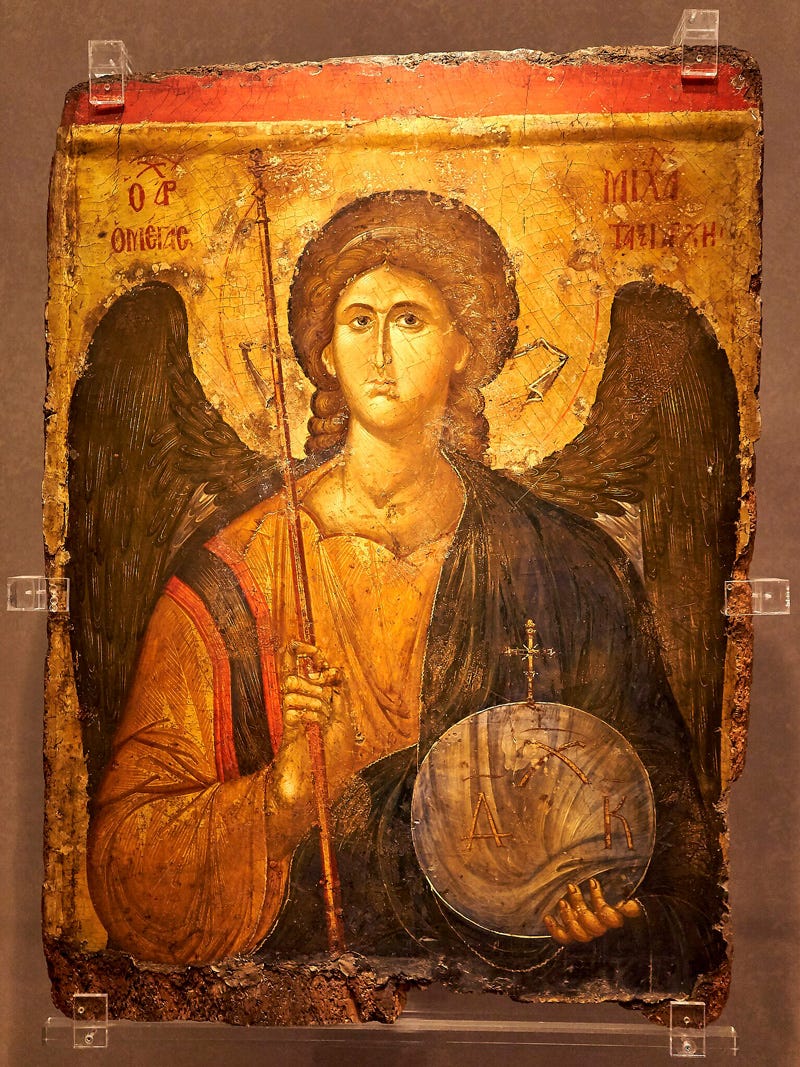
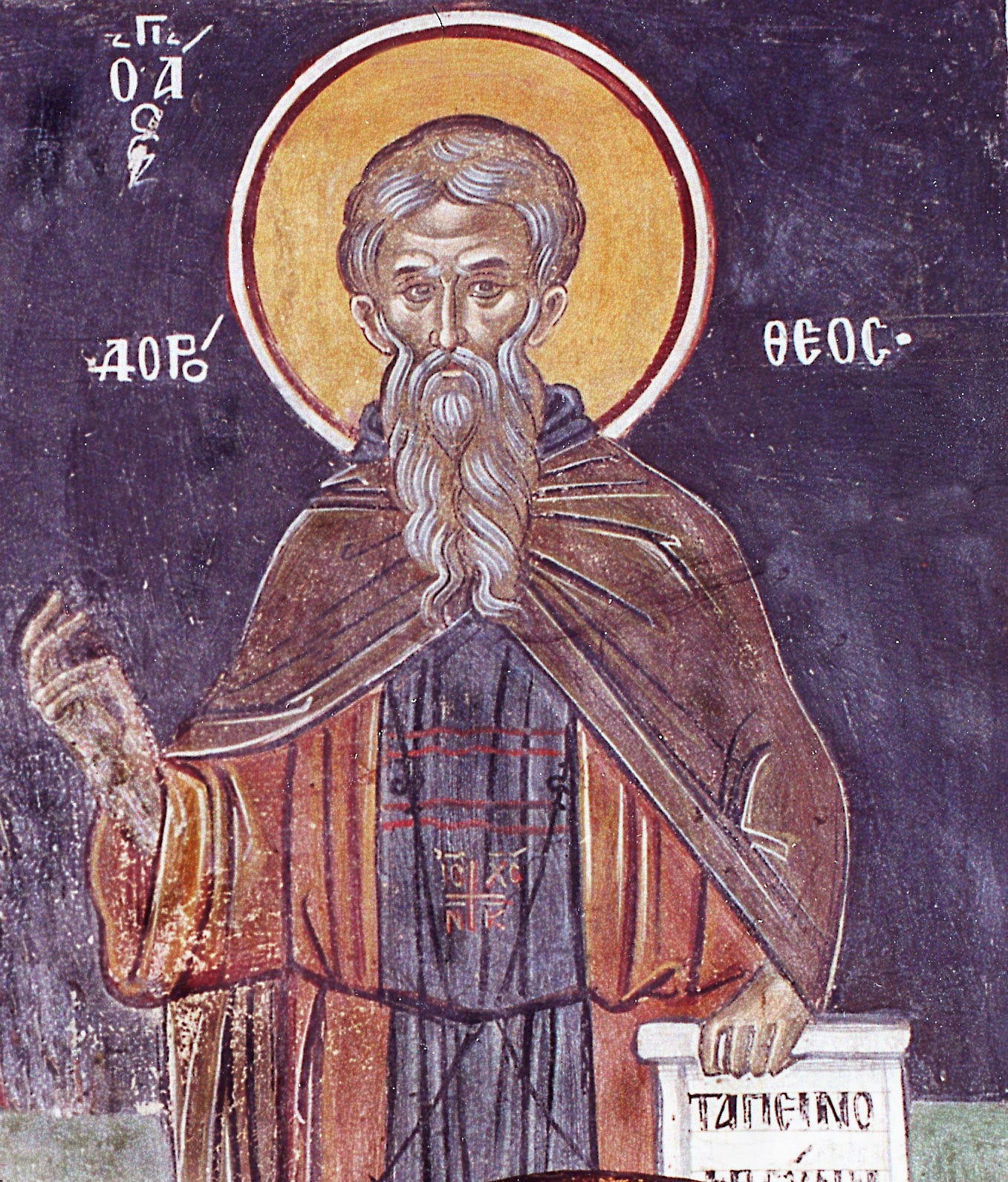
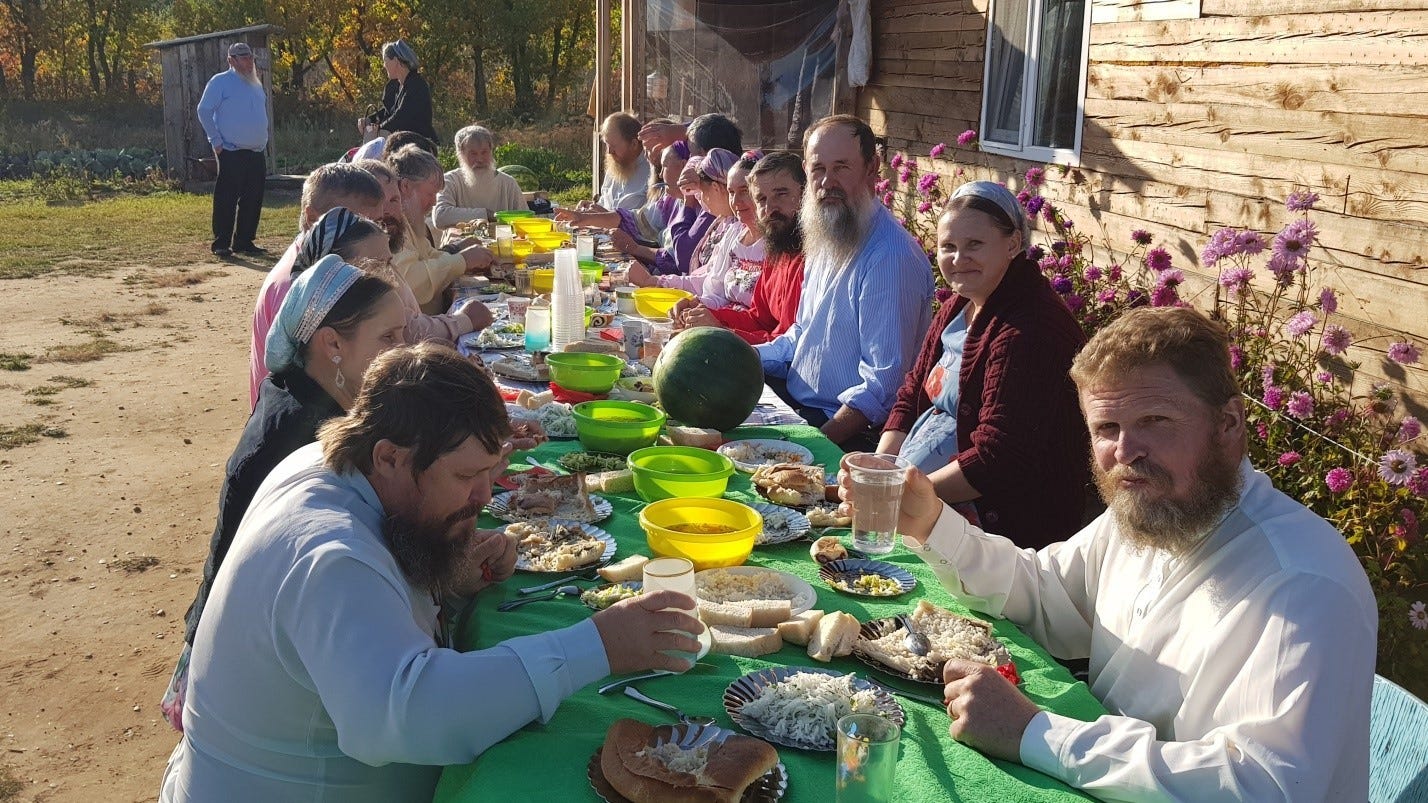
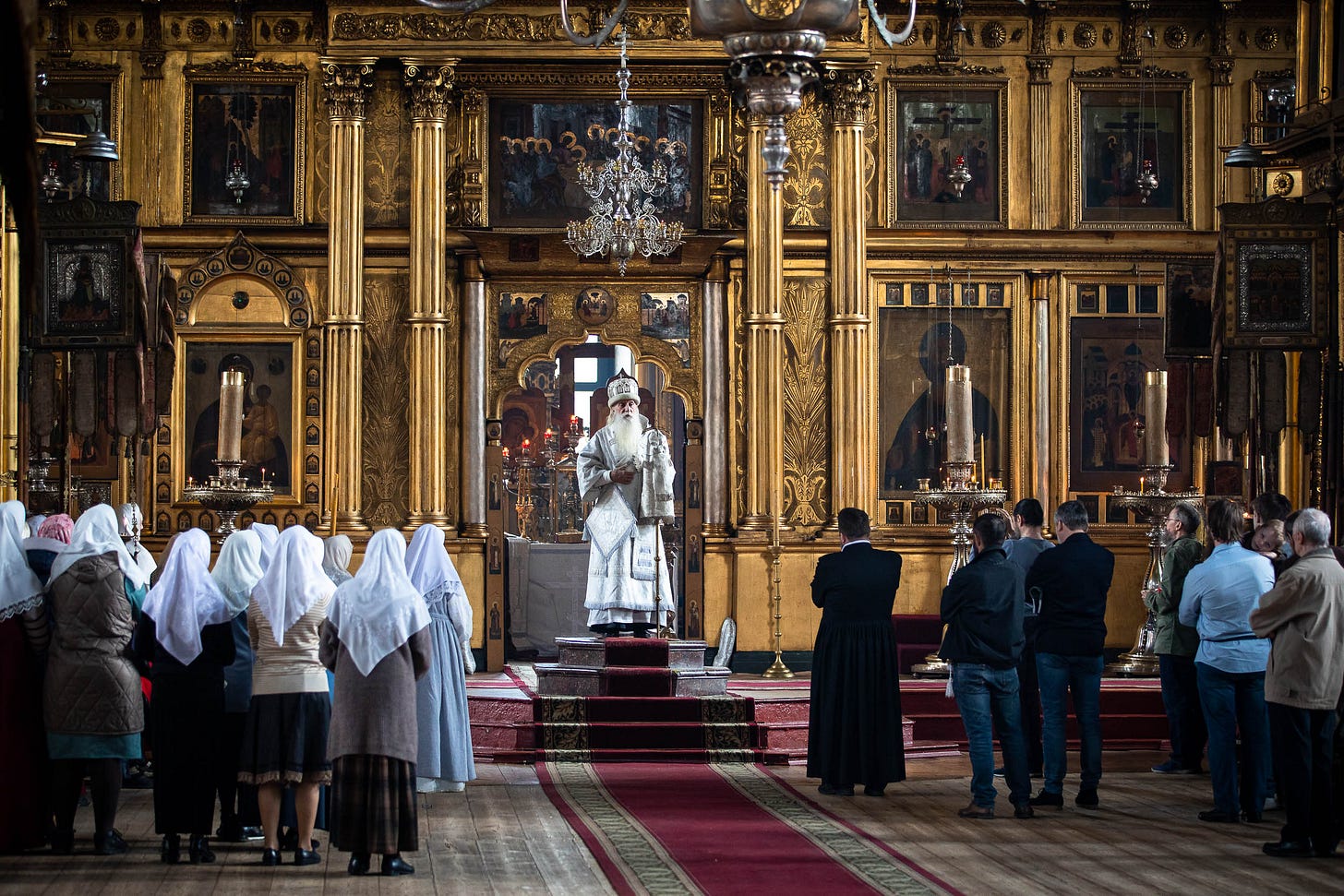
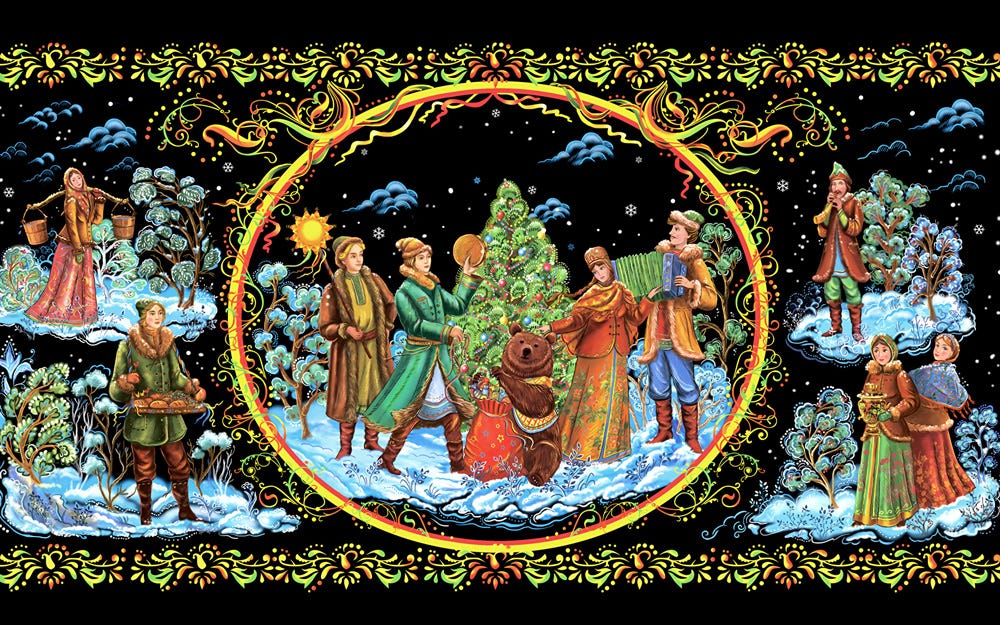
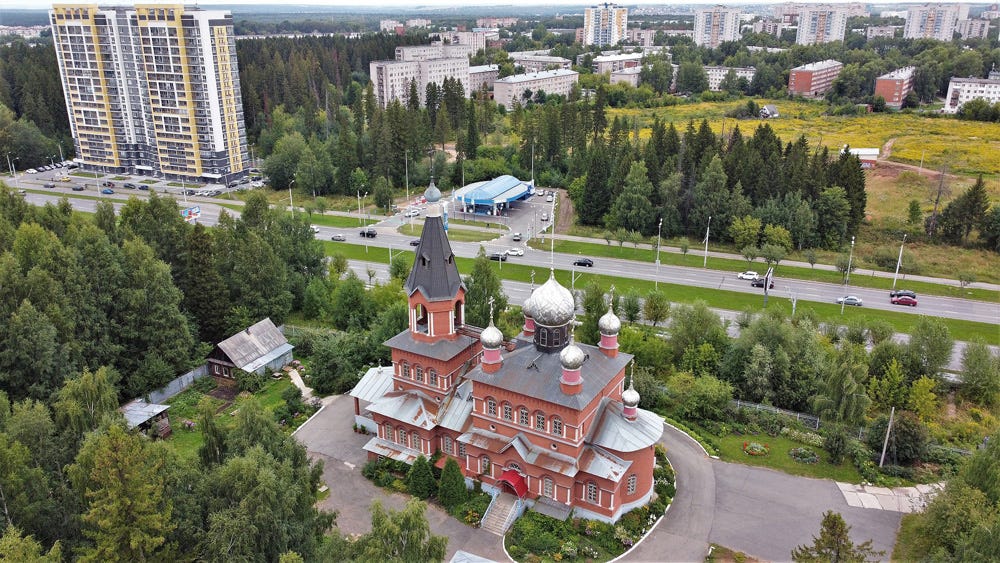
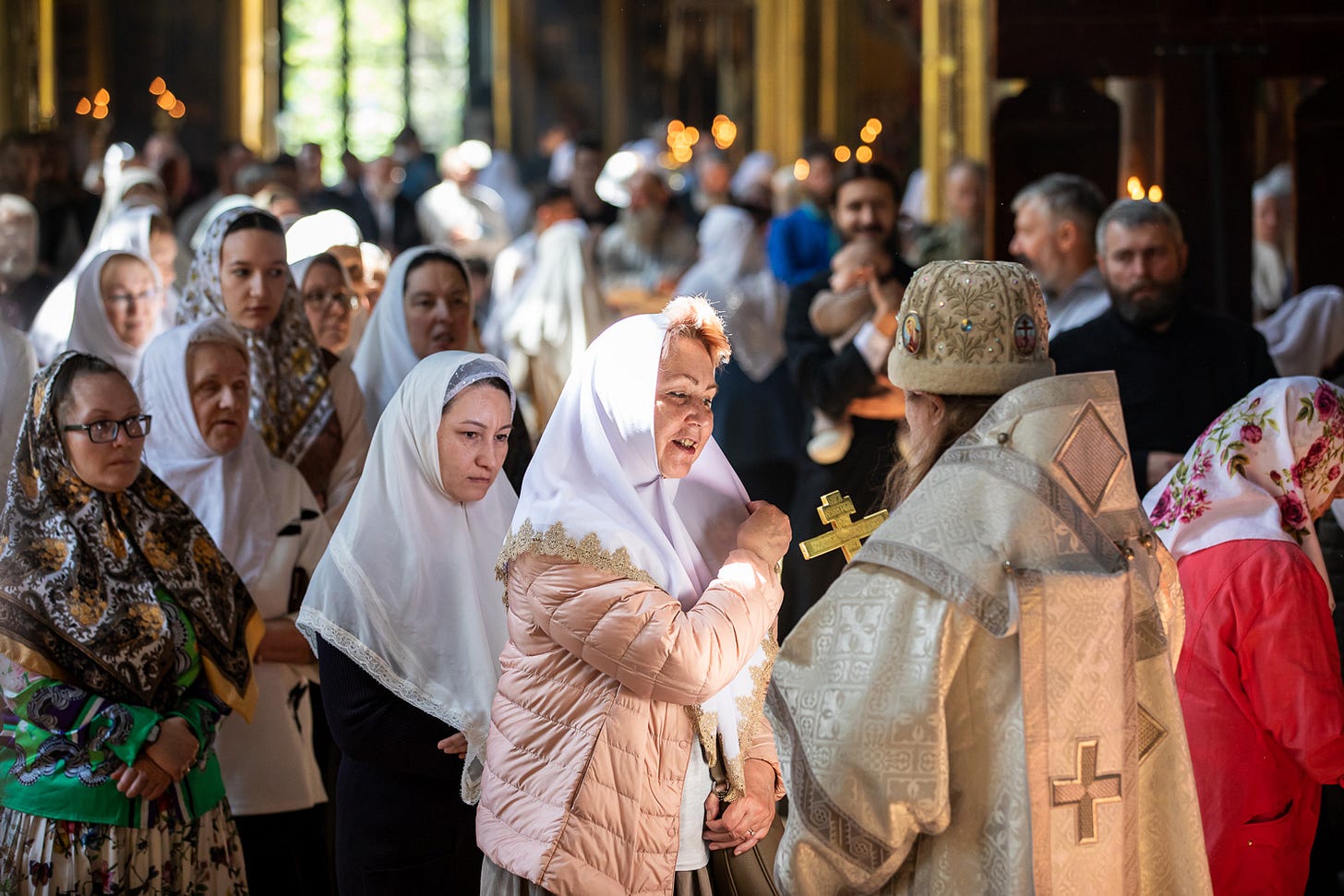
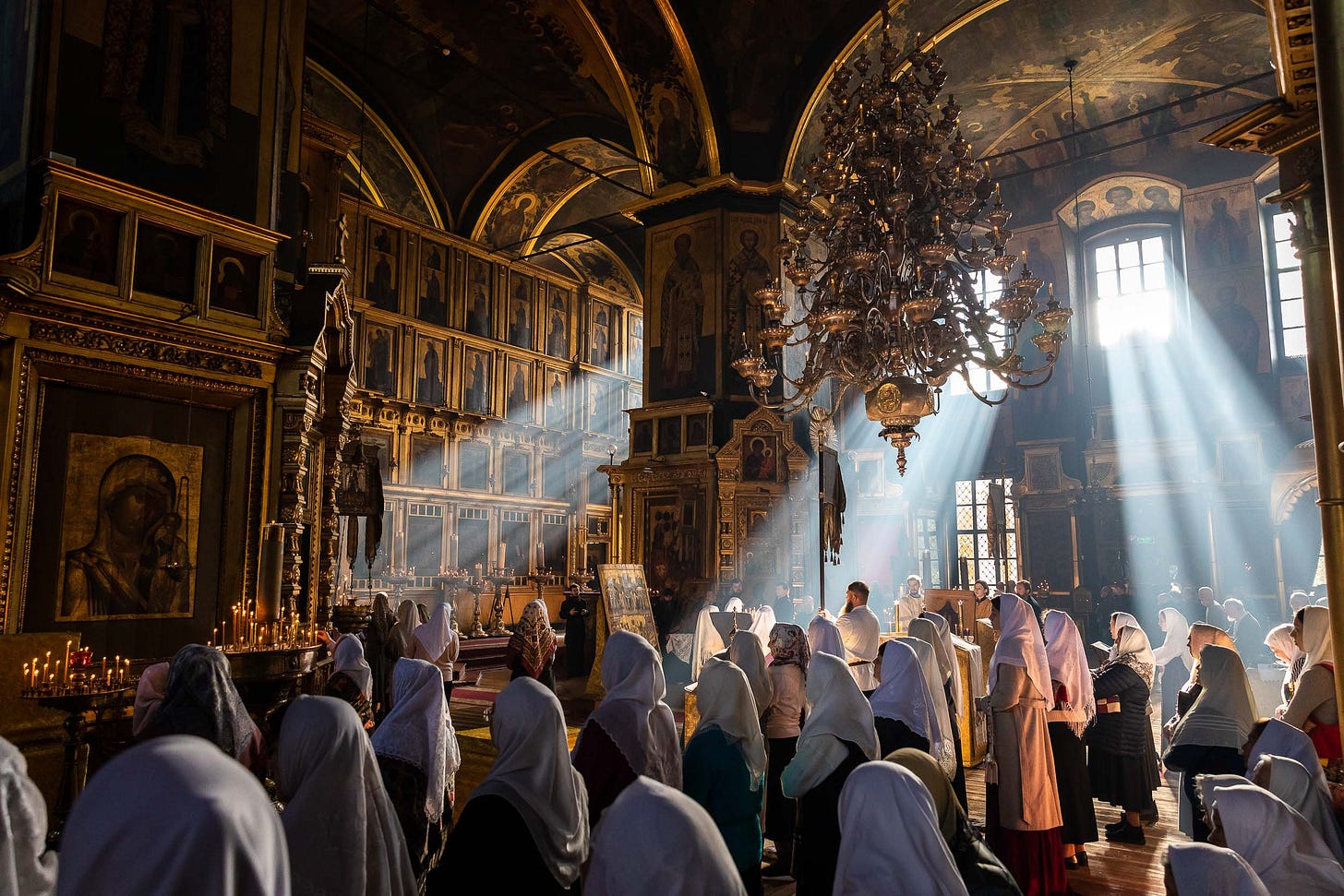
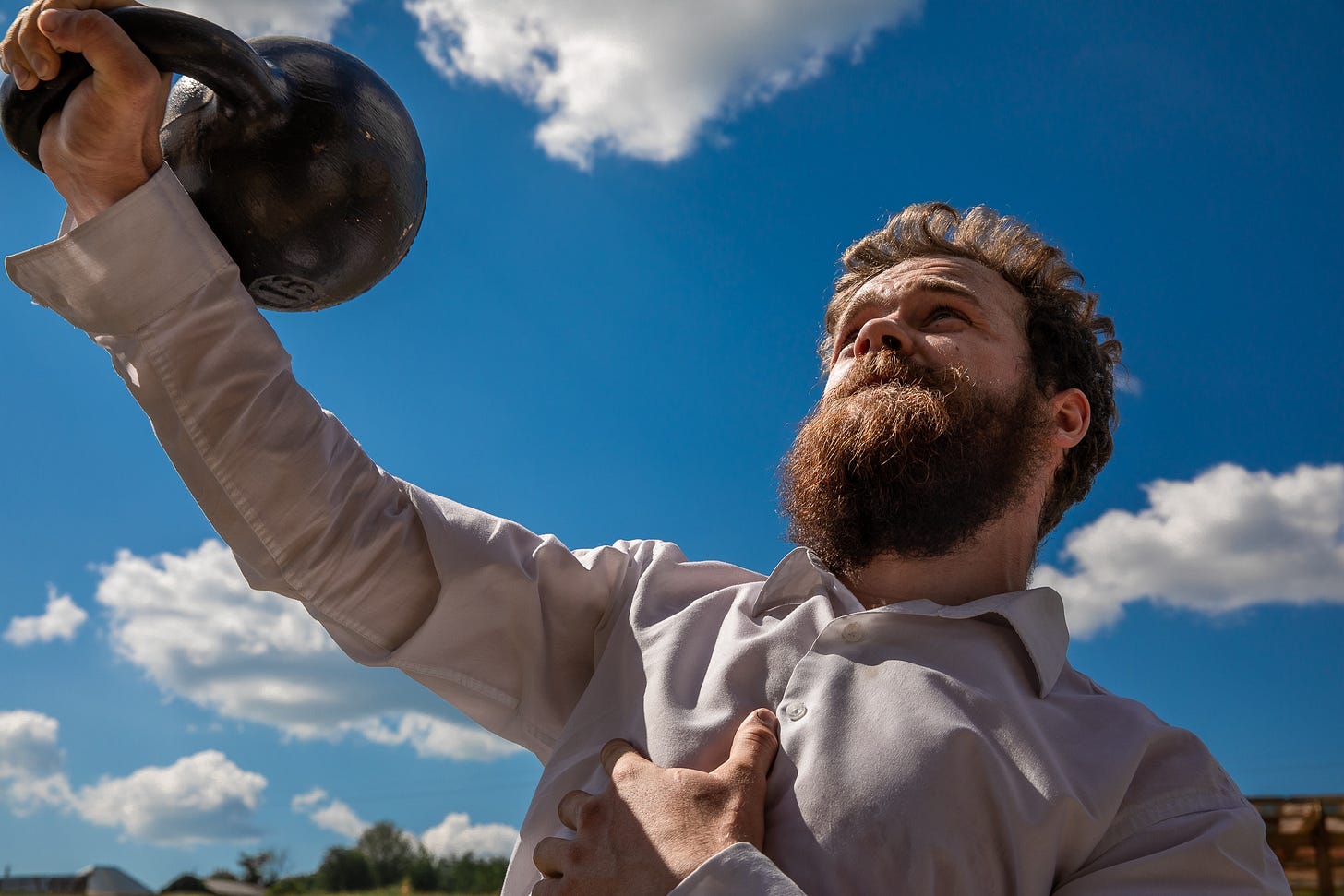
Christ save you! I am glad you enjoy the books, and I appreciate the support!
Слава Ісусу Хрісту
I’ve seen differing opinions on how children are to be named. Willy Nilly as long as it’s a saints name, or specifically for the Saint Commemorated on the day of his birth.